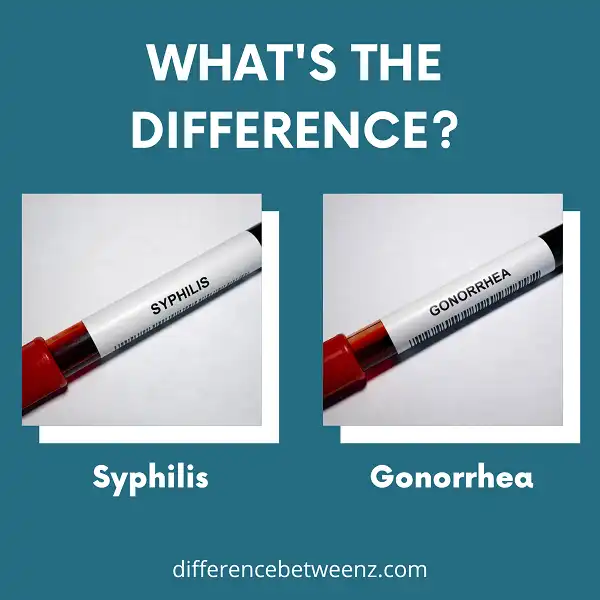When most people hear the words “sexually transmitted infection”, they automatically think of HIV/AIDS. However, there are several other sexually transmitted infections out there, and it’s important to be aware of them all. In this post, we will compare and contrast syphilis and gonorrhea – two of the most common sexually transmitted infections. Both of these infections can cause serious health problems if left untreated, so it is important to know the differences between them.
What is Syphilis?
Syphilis is a sexually transmitted infection (STI) that can cause serious health problems if it is not treated. Syphilis is caused by a bacteria called Treponema Pallidum. Syphilis is usually passed from person to person through sexual contact.
It can also be passed from a mother to her unborn baby. Syphilis can cause a wide range of symptoms. In the early stages, syphilis may cause a sore or sores on the genitals, mouth, or rectum. Syphilis may also cause fever, rash, headache, and swollen lymph nodes.
If syphilis is not treated, it can damage the brain, heart, and other organs. Syphilis can also lead to death. Syphilis can be cured with antibiotics. If you think you have syphilis, it is important to see a healthcare provider for diagnosis and treatment. Syphilis is a serious infection, but it can be cured.
What is Gonorrhea?
Gonorrhea is a bacterial infection that can cause severe pelvic pain and inflammation in women. It can also lead to infertility. Gonorrhea is spread through sexual contact with an infected person.
- The bacteria can infect the cervix, urethra, anus, or throat. Gonorrhea is a serious infection, and it can be life-threatening if left untreated. If you think you may have been exposed to gonorrhea, it is important to see a healthcare provider as soon as possible.
- Gonorrhea can be treated with antibiotics, but it is important to finish the entire course of treatment to prevent the infection from coming back. Gonorrhea is a serious infection, and it is important to take steps to prevent its spread.
- If you are sexually active, you should use condoms every time you have sex. You should also get tested for gonorrhea and other STDs on a regular basis. Gonorrhea is a serious infection, but it can be prevented with proper precautions.
Difference between Syphilis and Gonorrhea
Syphilis and gonorrhea are two different sexually transmitted diseases (STDs) caused by different bacteria. Syphilis is caused by the bacterium Treponema pallidum, while gonorrhea is caused by the bacterium Neisseria gonorrhoeae.
- Syphilis is a chronic infection that can cause serious health problems if left untreated, while gonorrhea is a bacterial infection that can also lead to serious health complications if not treated promptly.
- Syphilis is typically spread through sexual contact with an infected person, while gonorrhea can be spread through sexual contact or contact with infected bodily fluids.
- Syphilis can cause a wide range of symptoms, including a rash, fever, and fatigue, while gonorrhea often causes no symptoms at all. Syphilis is diagnosed through a blood test, while gonorrhea is diagnosed through a urine test or swab of the affected area.
Syphilis is treated with antibiotics, while gonorrhea is also treated with antibiotics. Syphilis and gonorrhea are both serious STDs that can cause long-term health problems if left untreated, so it’s important to get tested if you think you may have been exposed to either infection.
Conclusion
Syphilis and gonorrhea are both sexually transmitted infections (STIs) that can cause serious health problems if left untreated. They are caused by different bacteria, and they affect different parts of the body. The symptoms of syphilis and gonorrhea can be very similar, so it’s important to get tested for both diseases if you think you might have been infected. Treatment for syphilis and gonorrhea is available, but it’s important to seek medical help as soon as possible.


